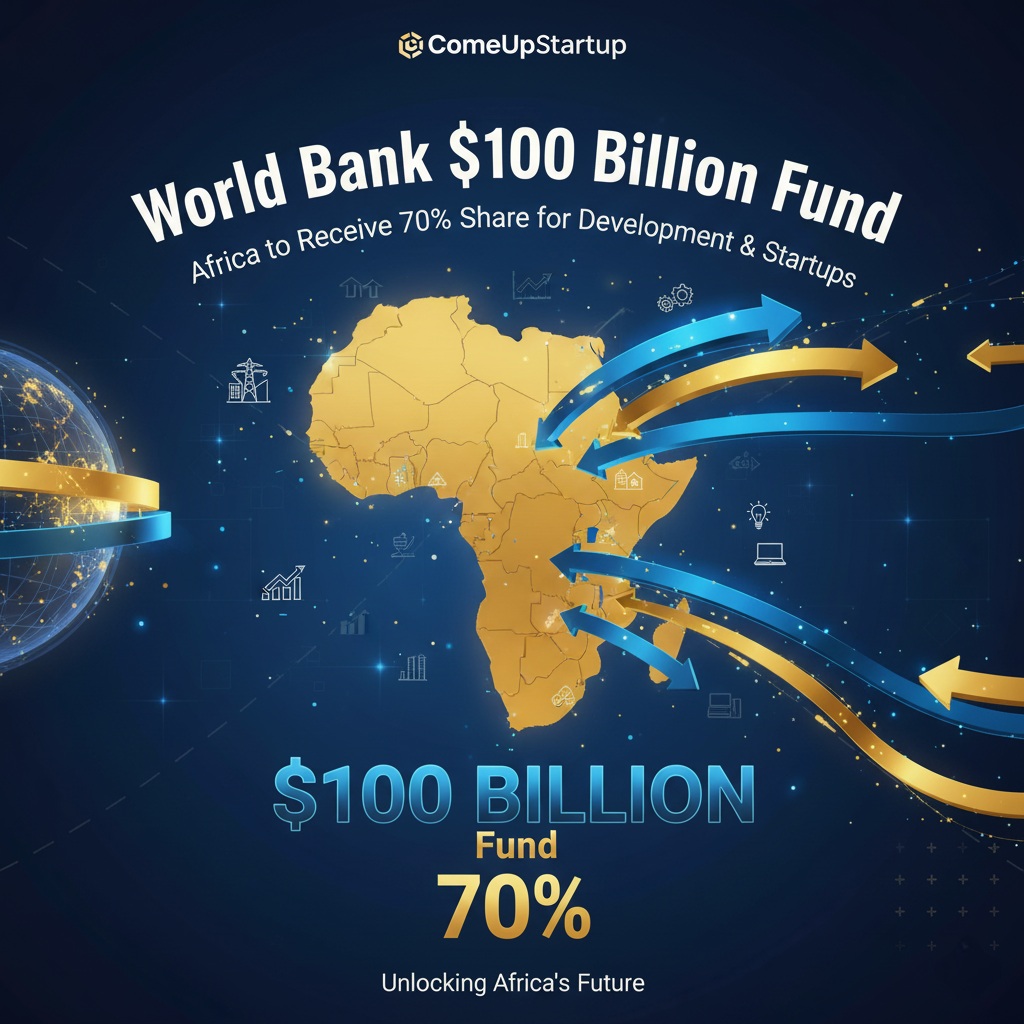World Bank $100 Billion Fund: Africa to Receive 70% Share for Development & Startups
The World Bank has announced a new $100 billion funding package to support the world’s poorest countries, with Africa set to receive the majority of the allocation. According to senior officials, over 70% of the concessional loans and aid will be directed towards Africa — making the continent the single largest beneficiary.
This move comes at a critical time. Official Development Aid (ODA) to Africa slipped by 1% last year to $42 billion, reflecting a global trend of shrinking aid budgets as donor nations redirect resources to domestic and security priorities.
Why Africa is Getting More Attention
Axel van Trotsenburg, the World Bank’s Senior Managing Director, emphasized in Addis Ababa that the institution remains “strongly committed” to Africa. He revealed that nearly 45% of all World Bank resources already flow into Africa, and the new package doubles down on that focus.
For many African governments, multilateral funding is becoming a lifeline as traditional aid from the United States, United Kingdom, and Europe faces cuts. Defense spending, domestic politics, and shifting geopolitics have all reduced the flow of grants and bilateral aid.
A Challenging Aid Landscape
Over the past year, aid programs have been severely disrupted:
- United States: President Donald Trump placed a temporary freeze on USAID disbursements, leading to the suspension of crucial health and development programs. Some of these included Ebola prevention and drought relief in Southern Africa.
- United Kingdom: In July, the UK government slashed foreign aid by 40%, affecting programs for children’s education, women’s health, and entrepreneurship support across the continent.
- United Nations: Even the UN’s World Food Programme shut down its Southern Africa office during the region’s worst drought in decades, citing funding gaps.
The ripple effects have been devastating: earlier this year, African entrepreneurs across six countries lost nearly $947 million in funding as U.S.-backed programs dried up.
What This Means for African Entrepreneurs
For Africa’s startup ecosystem and young founders, the World Bank’s move could open up new opportunities — but only if governments and institutions channel the funds effectively. Some implications:
- Infrastructure Financing: Expect more funding for transport, power, and digital infrastructure that startups rely on.
- Social Programs: Health, education, and women/youth initiatives may receive a boost, which in turn supports inclusive entrepreneurship.
- Low-Cost Loans: With concessional financing, African governments can extend credit to SMEs and startups at friendlier rates.
- Regional Gaps: Countries with stronger governance may attract more disbursements, widening inequalities across the continent.
The Big Picture
This $100 billion allocation is both a lifeline and a wake-up call. It underscores how dependent African nations still are on external aid, while also showing that multilateral lenders like the World Bank are stepping up where traditional donors are retreating.
For African founders, the message is clear: watch how these funds are deployed locally, and position yourself to benefit from the new streams of concessional capital.
The world may be cutting back, but Africa just secured its biggest shot of funding in years. The challenge now is making sure that capital turns into real opportunities for businesses and communities across the continent.
👉 Question for you, our readers: How do you think this World Bank fund should be spent to create the biggest impact for African entrepreneurs and startups?




Leave a Reply